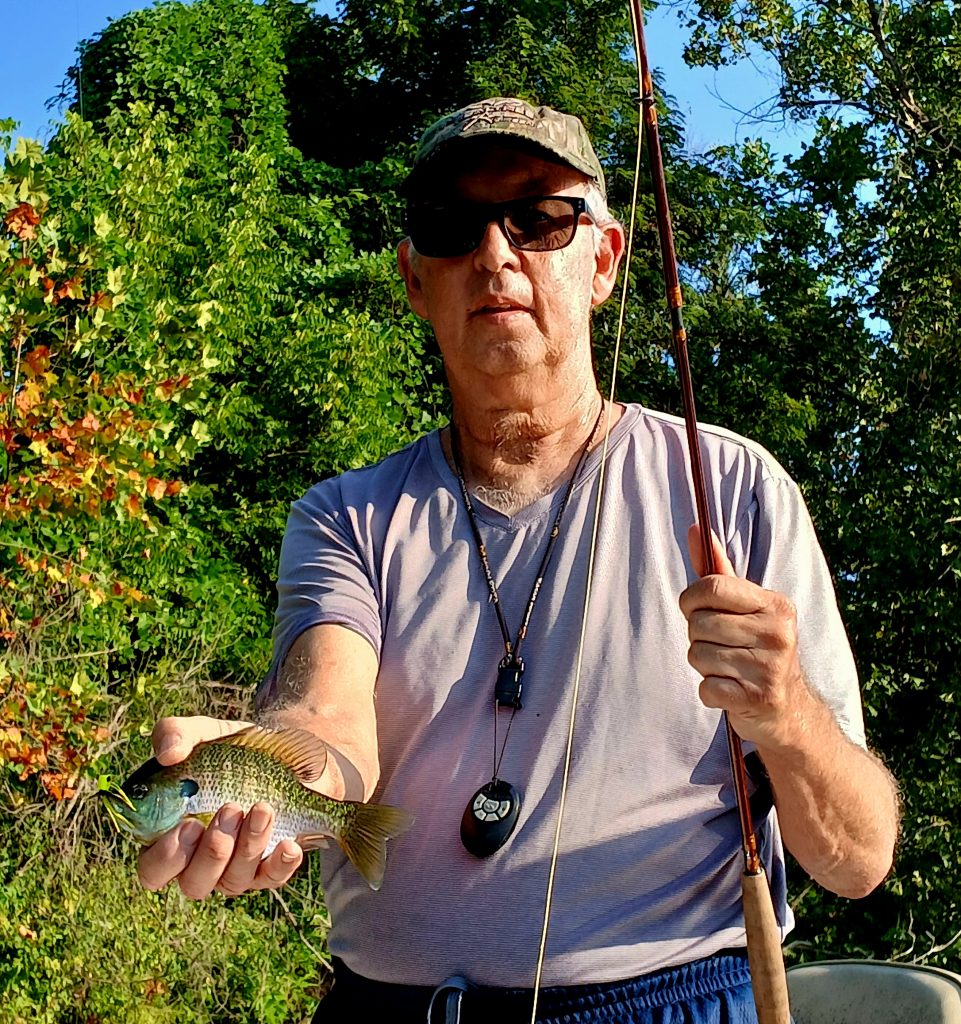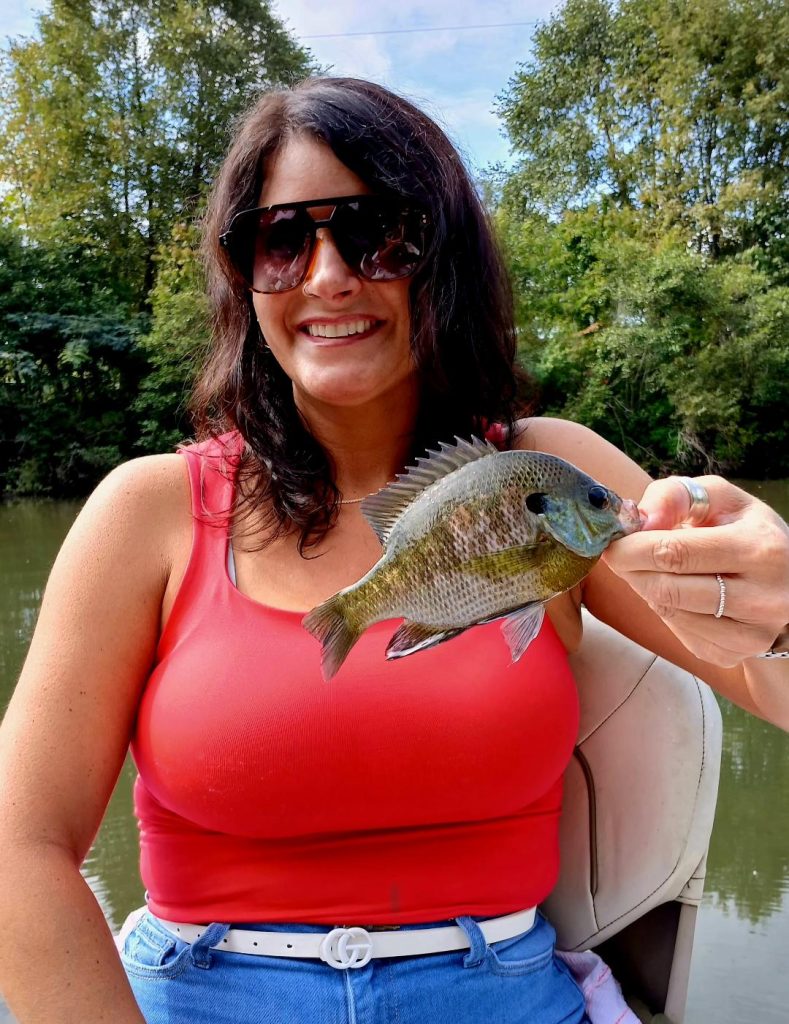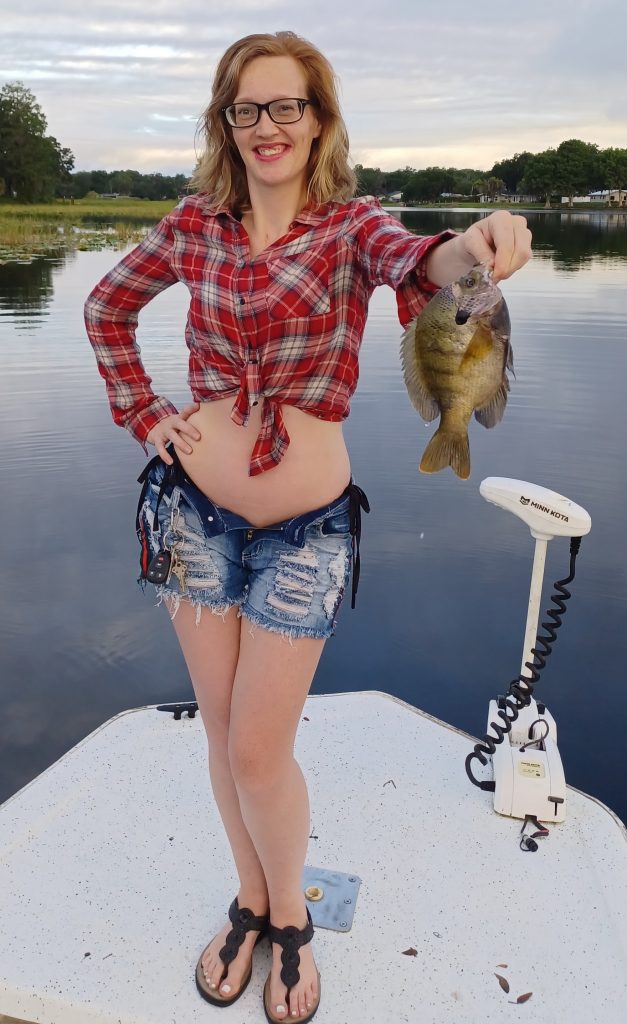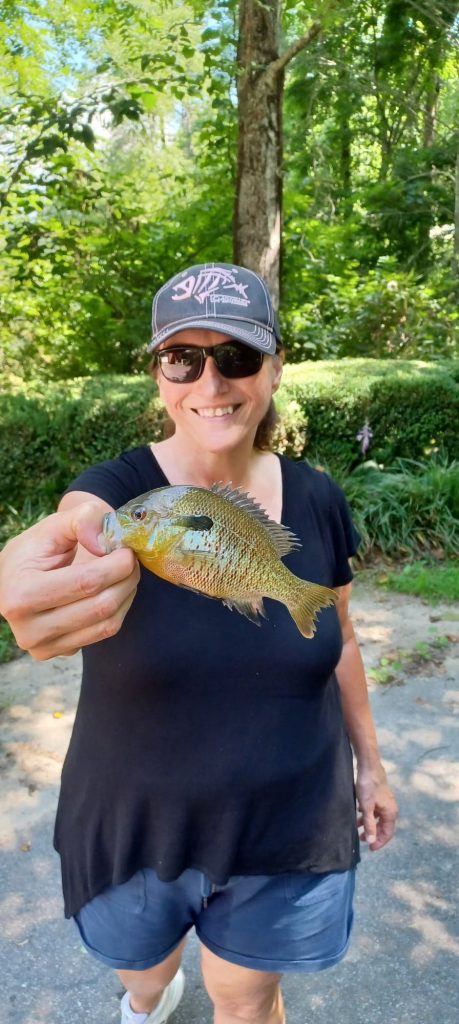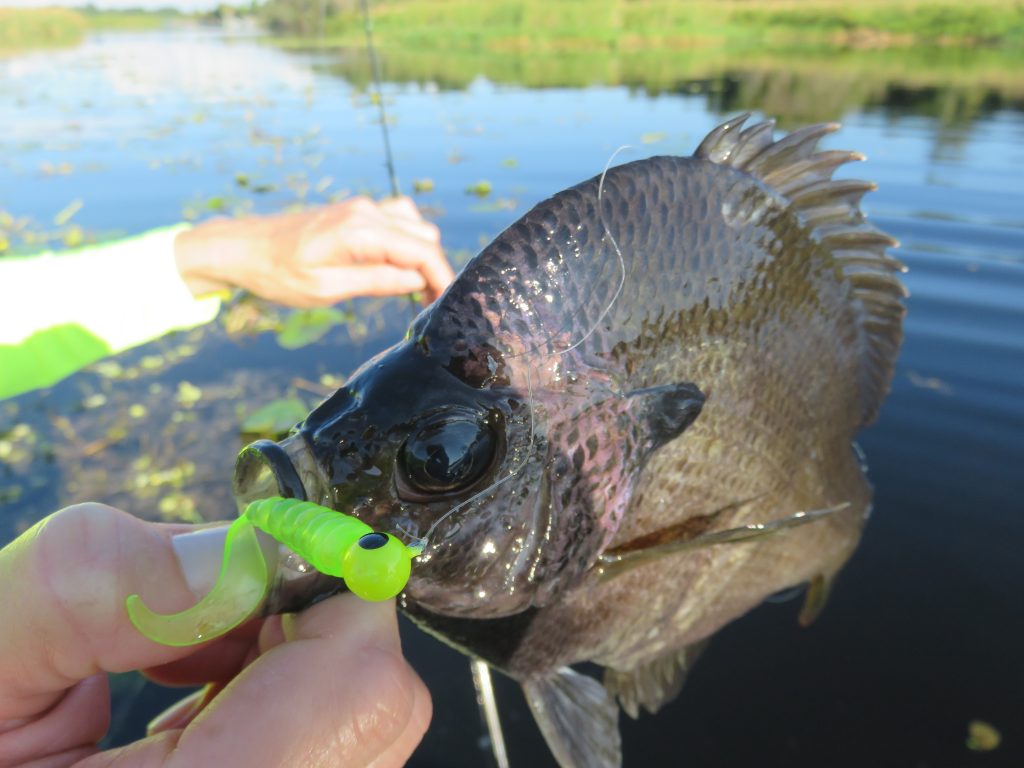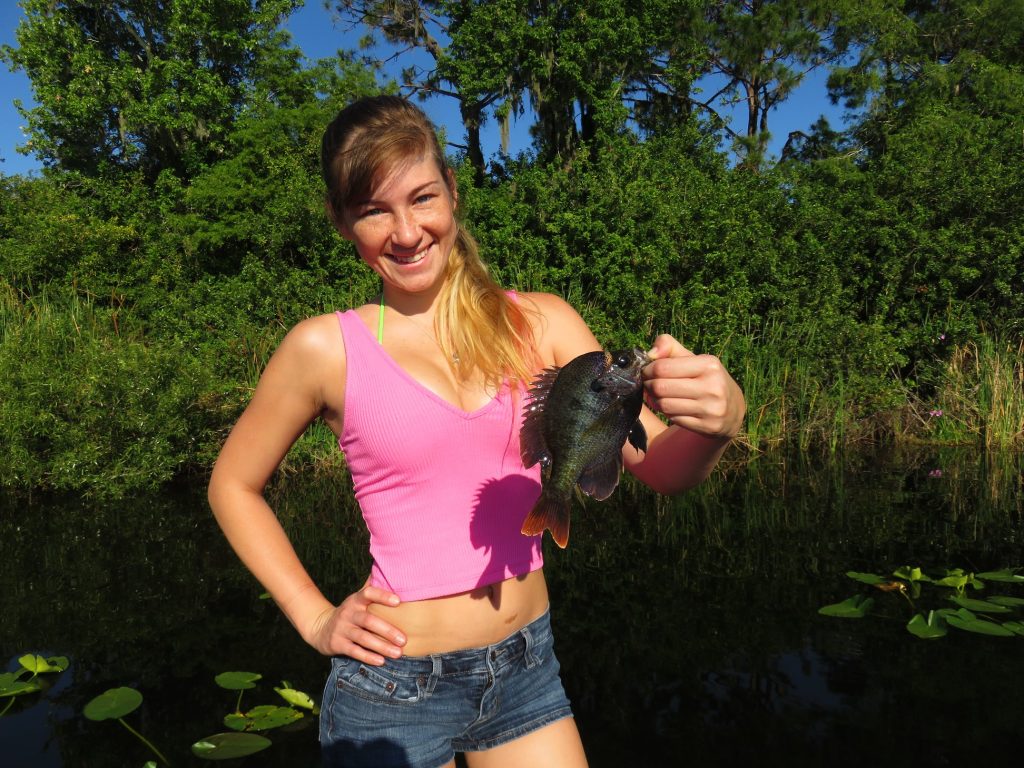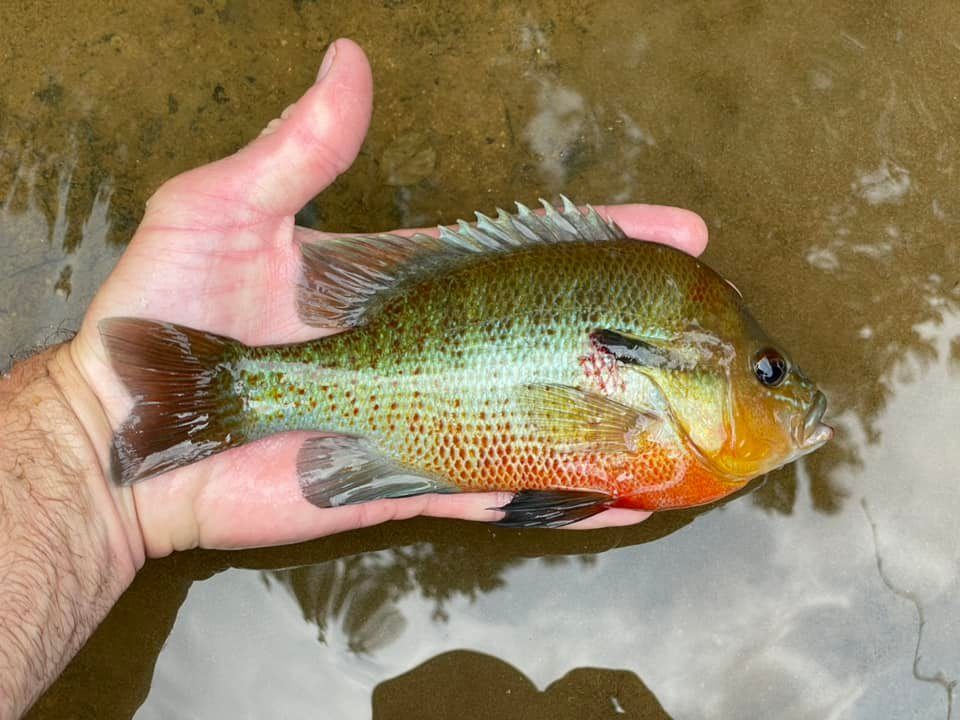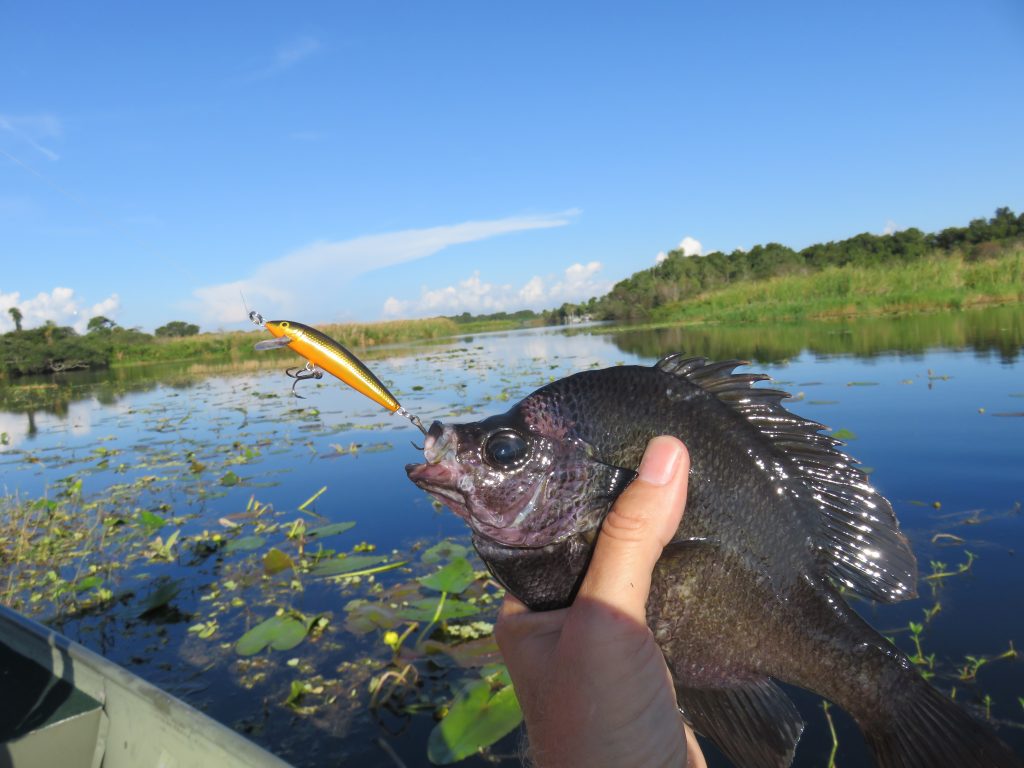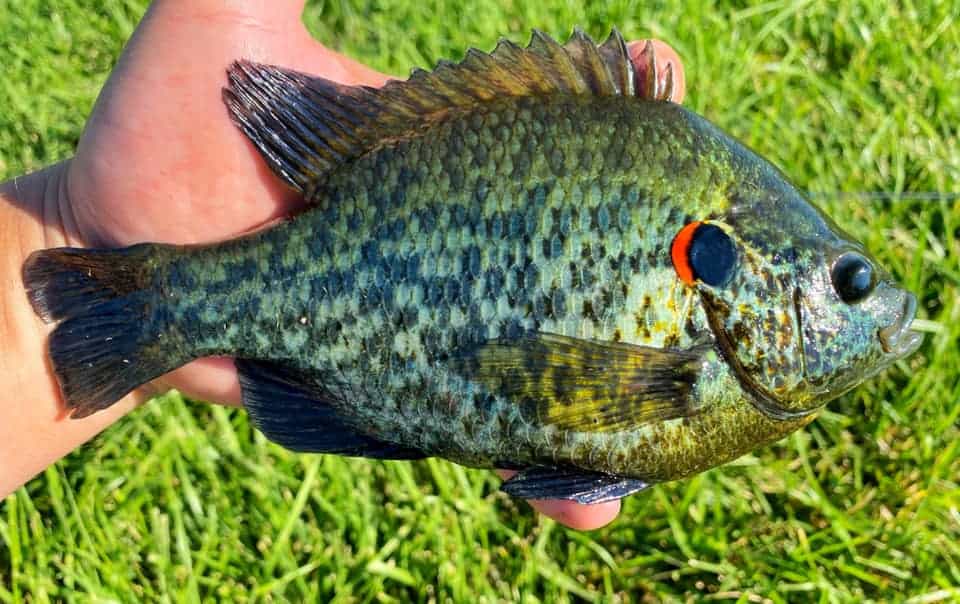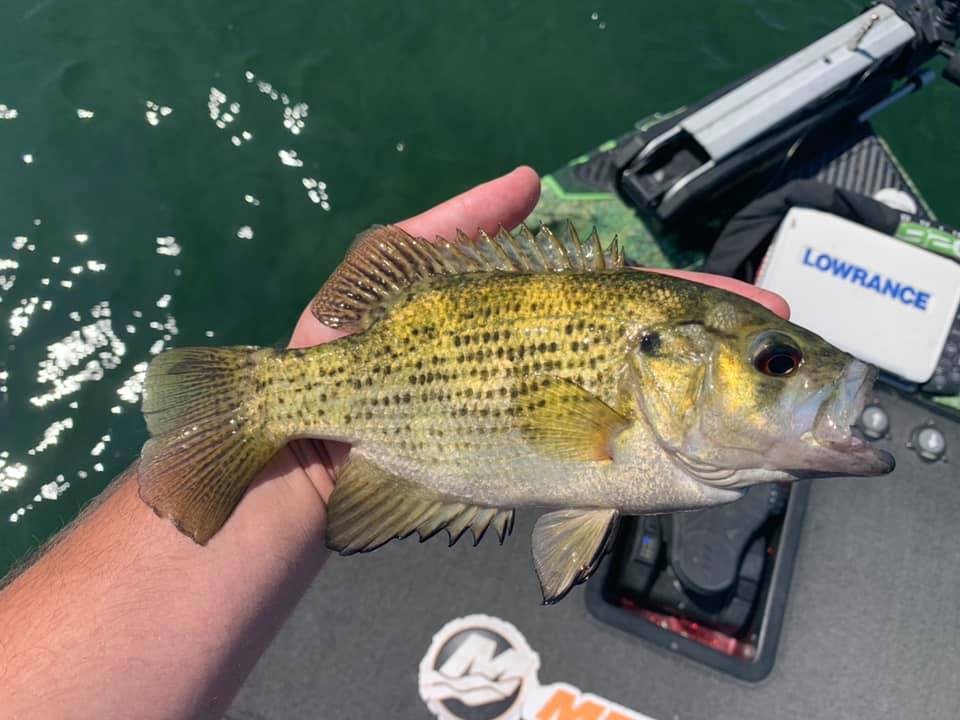Fishing for sunfish in Franklin, NC
This article will thoroughly cover fishing for sunfish and bluegill in Franklin, North Carolina. Trout get the big press in the western North Carolina mountains. Smallmouth bass are not far behind. However, this part of North Carolina offers some very good, and often overlooked, fishing for bluegill and sunfish.
Read my comprehensive article on fishing in Franklin North Carolina
With the exception of clear, cold trout streams, just about any body of water in western North Carolina will hold panfish. In Franklin, North Carolina, the main spot to fish for sunfish and bluegill is Lake Emory and the Little Tennessee River downstream from the dam. The slower, warmer, deeper Lake Emory produces consistent fishing for sunfish and other panfish. The slower portion of the Cullasaja River produces some fish as well.
Call Capt Jim at (941) 371-1390 or e-mail captjimklopfer@gmail.com
There are a variety of sunfish available to anglers fishing in Franklin, North Carolina. Current regulations can be viewed in this link. The three most plentiful are redbreast sunfish, bluegill, and redear sunfish, (also known as shellcracker). Pumpkinseed, warmouth, and rock bass are also found in a lot of the waters, especially ponds and lakes.
Read more about guided fishing in North Carolina
Lake Emory is very accessible to anglers via the Greenway, a trail that runs alongside the river. There are several spots to access it. There are also a couple of kayak launches and a nice surfaced ramp for larger boats. The Little Tennessee River below the dam to Tellico Bridge is best fished by drifting in kayaks or rafts. The best sunfish spots will be the deeper, slower pools.
Fishing for bluegill and sunfish in Franklin, North Carolina
Fishing for sunfish is not very complicated, and that is part of the allure. Anglers only need an inexpensive ultra light spinning rod and a handful of tackle. The same outfit used for trout fishing will be fine. Small artificial lures work well but live bait is probably more effective on a consistent basis. Worms are by far the best live bait for sunfish and other panfish. Wigglers and garden worms are usually the best bet as opposed to nightcrawlers. In Franklin, they are available at Walmart and a couple convenience stores.
Other baits can certainly be used as well. Crickets are a fantastic bait, especially for larger bluegill. As of this writing, Walmart sells live crickets. Grass shrimp are another terrific bait, particularly for redear sunfish. Again, not as readily available. When looking at all the factors, worms are tough to beat.
I like to keep it simple when using live bait when fishing for sunfish. I opt for a #8 live bait hook. Often times, I simply use the hook alone, allowing the bait to fall naturally through the water column. At times, I will add a small split shot. If there is structure or weeds on the bottom, I will use a small float to suspend the bait. The float also indicates when a fish takes the bait and provides some casting weight.
Fishing for sunfish using artificial lures
Small lures work well on sunfish, particularly bluegill, which can be quite aggressive. There are three lures that I use exclusively when fishing for sunfish in Franklin, North Carolina. These are a 1/16 ounce black Beetle spin, a 1/16 ounce chartreuse curly tail jig, and a 1/16 ounce Rooster tail spinner, black with gold flecks and a gold blade. These 3 lures will cover every situation a sunfish angler will encounter.
All three lures work best with a similar retrieve. Sunfish respond best to a slow, steady retrieve. With the Beetle spin and Rooster tail, the speed should be just enough to keep the blades turning. Same goes for the jig, a slow retrieve will cause the tail to wiggle enticingly.
Fly fishing for sunfish and bluegill
Fly fishing is great fun and usually very productive. A small white or chartreuse popper is tough to beat. Anglers can fish below the surface with a wooly bugger or nymph. One popular approach is the “popper dropper”. With this rig, a small nymph is tied on a 20′ leader then tied to the bend of the hook on the popper. A 3wt or 4wt outfit with a floating line and 9′ 5x tippet is a good all round combination. Anglers will do best working the popper or fly slowly; less is usually more.
Sunfish love structure
Generally speaking, sunfish prefer structure. This can come in many forms. Boat docks can hold a large school of bluegill or sunfish, though there are not many docks on Lake Emory. They provide cover, shade, and forage. Fallen trees are bluegill and sunfish hot spots! Weed beds and other aquatic vegetation also attracts sunfish and bluegill.
In most cases, the best approach is to work the edges of the cover. The fish will usually charge out to take the bait of lure. If they seem hesitant to bite, anglers may have to get their offering further back in the structure. This includes weed edges, especially lily pads. For the most part, this is simply working the shoreline. However, sunfish and bluegill will relate to deeper structure as well.
Anglers fishing for sunfish and bluegill in Franklin, North Carolina will do best in the warmer months. This works out well as trout fishing (which is VERY popular) slows down as it warms up. The good warm weather fishing for sunfish gives anglers an option that provides action, variety, and fillets in the cooler. It is easy, relaxing, and productive, what more could an angler ask for?
Species available to Franklin North Carolina anglers
There are several species of sunfish that are available to western North Carolina anglers. While similar in habits, there are some differences. The different species will be covered below.
Redbreast sunfish
The redbreast sunfish is plentiful in Franklin, North Carolina. There are a lot of small ones, but persistent anglers will put enough keeper sized fish in the cooler. They take artificial lures, but live bait is generally more reliable and productive. A live worm fished under a bobber cast towards shoreline cover will catch plenty of fish. The bait ca be free lined in deeper water.
Bluegill
Bluegill are the most aggressive fish in the sunfish family. They readily take lures and flies, along with live bait, of course. Bluegill love wood, docks and fallen trees are excellent places to catch them.
Redear sunfish
Redear sunfish, also known as shellcrackers (due to their appetite for crustaceans), grow larger than the other panfish species. They are usually found a little deeper and prefer hard bottom of shell or sand. They are fantastic eating!
Rock Bass
Rock bass, also called red eyed bass, are very aggressive. They are often caught by anglers targeting smallmouth bass in rivers, which is their preferred habitat. They put up a great battle for their size.
In conclusion, this article on fishing for sunfish in Franklin, North Carolina will help anglers catch more of these miniature game fish!
